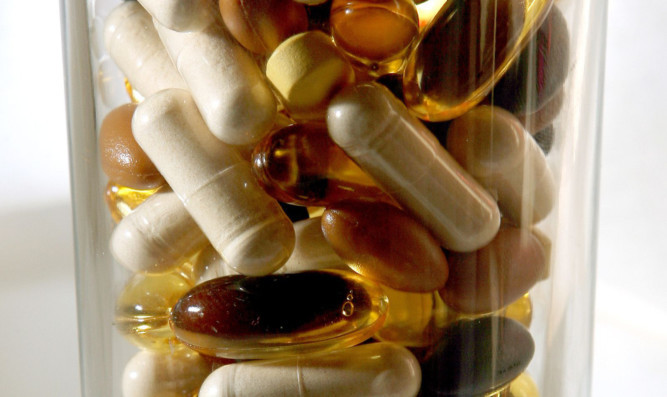Taking vitamin supplements may actually increase the risk of getting cancer and heart disease, new research has warned.
Millions of Britons take vitamin supplements regularly in a bid to stay fit and healthy, but a decade-long study which examined the healthy benefits of supplements on thousands of people found they can do “more harm than good”.
Experts warned that taking above the recommended daily amount of over-the-counter vitamins may increase the risk of developing cancer and heart disease by up to 20%.
And they urged the public to get their vitamins from a healthy diet rather than rely on pills.
Tim Byers, a professor at the University of Colorado Cancer Centre who led the study, said: “We are not sure why this is happening at the molecular level, but evidence shows that people who take more dietary supplements than needed tend to have a higher risk of developing cancer.”
The revelations will raise questions over the market for shop-bought vitamins, which according to market research group Mintel was estimated to be worth £385 million in 2012.
Research by the Food Standards Agency in 2008 estimated one in three Britons took some form of dietary supplement and half of all households with children gave them vitamins or minerals.
The results prompted Dr Byers to call for supplements to be reclassified as drugs rather than food in the US. Depending on the contents, such supplements are either classed as medicines or food in the UK and are subject to different regulations.
He said the study showed they were a “public health” issue and wanted to see authorities “pay more attention to safety and how they are advertised.”
The research team began investigating the potential health benefits contained within vitamins and minerals 20 years after observing that people who ate more fruits and vegetables tended to have less cancer. Scientists wanted to see if taking supplements would produce the same effects.
But they were surprised to discover that far from boosting people’s health, taking too much of a vitamin supplement can increase the risk of potentially fatal diseases.
Dr Byers said: “This idea they may be harmful was a foreign one. We did not even think that was a possibility when we started.
“We found that the supplements were actually not beneficial for their health. In fact, some people actually got more cancer while on the vitamins.
“It comes down to dose and educating physicians and the general public to stay away from high-dose vitamins, only taking them in the recommended range”.
One trial exploring the effects of beta-keratin supplements showed that taking more than the recommended dosage increased the risk for developing both lung cancer and heart disease by 20%.
Folic acid, which was thought to help reduce the number of potentially cancerous growths known as polyps in a colon, actually increased the number in another trial.
Dr Byers said the findings did not suggest that all vitamin supplements were dangerous and should be shunned. But he warned that taking too many of them can carry a health risk.
He said: “This is not to say that people need to be afraid of taking vitamins and minerals. If taken at the correct dosage, multivitamins can be good for you. But there is no substitute for good, nutritional food.
“At the end of the day we have discovered that taking extra vitamins and minerals do more harm than good.”
He added he felt “nothing is going to happen very fast” to change the industry and said more research was needed to “figure out at the molecular and cellular level why this is happening”.
The findings were presented at the annual meeting of the American Association for Cancer Research.
